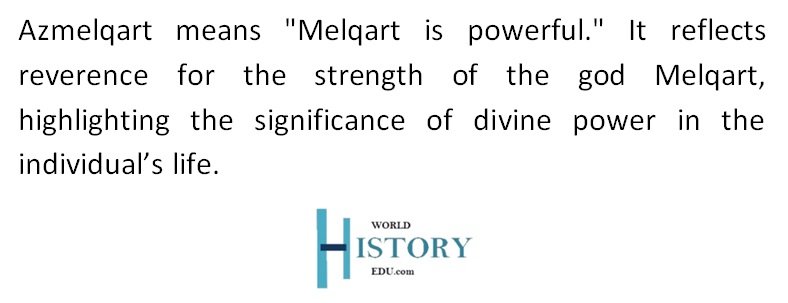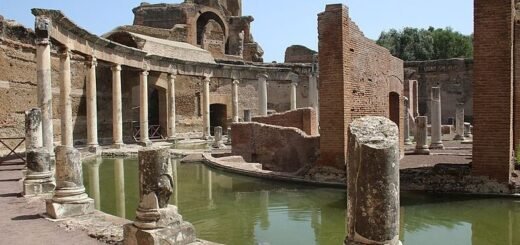Naming of Children in Ancient Phoenicia
The Phoenicians, who lived in the coastal regions of the eastern Mediterranean (modern-day Lebanon, parts of Syria, and Israel), were renowned for their extensive trade networks, seafaring skills, and significant contributions to early writing systems. Their names, like those of many ancient peoples, were often loaded with meaning, referring to gods, religious beliefs, nature, and personal attributes. These names provide key insights into their societal structures, beliefs, and worldview.
Religious Influence in Phoenician Names
Religion played a central role in Phoenician society, and their names often reflected their devotion to the gods. Many Phoenician names were theophoric, meaning they included the name of a deity, signifying the importance of divine protection or favor. The pantheon of gods worshiped by the Phoenicians was vast, and key deities were frequently mentioned in names.
Some of the most common deities found in Phoenician names were:
El: The supreme god of the Phoenician pantheon, often associated with creation and the sky.
Baal: A prominent and widely worshiped storm god, often referred to in various forms like Baal-Shamin (Baal of the Heavens) or Baal-Hamon.
Astarte: A powerful goddess of fertility, love, and war.

Image: A statue depicting Baal.
Phoenician names invoking these gods would often indicate a hope for divine favor, prosperity, or protection.
Some examples of these names include:
- Hannibal: Meaning “Grace of Baal” or “Favored by Baal,” a name that invokes the blessing of the god Baal.
- Eshmunazar: Meaning “Eshmun helps,” where Eshmun is the Phoenician god of healing and medicine.
- Abd-Melqart: Meaning “Servant of Melqart,” referring to the god Melqart, a deity associated with the underworld and kingship, particularly in the city of Tyre.
In this way, Phoenician names were closely linked to religious life and often reflected the individual’s relationship with the divine.
READ MORE: Most Famous Phoenician Deities
Nature and Descriptive Elements in Phoenician Names
Apart from references to the gods, Phoenician names also drew inspiration from nature, animals, plants, and the world around them. Names could describe personal qualities, physical traits, or desirable characteristics associated with strength, wisdom, or leadership.
For example:
- Eshmouniaton: Means “Eshmoun has given.” It reflects the role of the god Eshmoun in the child’s life, possibly indicating that the child is seen as a gift from the god or blessed by him.
- Adon: Meaning “Lord” or “Master,” the root of the name Adonis, which was later adopted by Greek mythology. This name also carried connotations of leadership and nobility.
- Melqart-shama’: means “Melqart has listened.” It signifies that the god Melqart has heard the prayers or requests of the individual or their family, showing the belief in divine responsiveness.
- Zakar-Baal: Meaning “Baal remembers,” where “zakar” means to remember or record, and Baal refers to the god. Names like these often reflect a sense of divine oversight or favor.
- Paltibaal: Means “my refuge is Baal.” This signifies that the individual seeks protection and safety in Baal, highlighting the importance of divine refuge in Phoenician beliefs.
- Ahiram: Meaning “Brother of the Exalted,” where the term “exalted” could signify either the divine or noble status.
- Baaliaton: Means “Baal has given,” suggesting that the child is a gift from the god Baal. This reflects the belief that the gods played a direct role in the creation and blessing of life.
Names that reflected natural elements or desirable traits demonstrated the Phoenicians’ strong connection to their environment and the way they interpreted their world. In a culture where trade and seafaring were central, names that conveyed power, resilience, or divine blessing would have been particularly meaningful.

Image: A statue of the head of Melqart.
Social Status and Family Lineage in Phoenician Names
Phoenician names were not just religious or nature-based; they also reflected social status, occupation, and family heritage. As in many ancient societies, a person’s name could signify their role in society or their family’s prominence. For instance, the names of kings, nobles, and other elite figures often included references to gods, suggesting their connection to divine power or protection.
For example, the name Bod-Astart means “Servant of Astarte,” indicating an individual who is dedicated to or under the protection of the goddess Astarte. This might suggest a religious or priestly role or simply indicate that the individual or their family was favored by the goddess.
The names of merchants, craftsmen, and other non-noble individuals may have been less theophoric but still carried meanings that denoted success, strength, or skill. Given the Phoenicians’ vast trade networks and commercial success, names that reflected wealth or prosperity would have been valued.
Variations in Phoenician Names by City-State
The Phoenician civilization was composed of a number of independent city-states, each with its own local customs and slight variations in naming practices. Major cities such as Tyre, Sidon, Byblos, and Carthage were centers of power, trade, and religious worship. The names associated with these cities often reflected their unique cultural and religious priorities.
- Tyre: Tyre was closely associated with the god Melqart, and many Tyrian names reflected this connection. A well-known example is Hiram, a name meaning “Brother of the Exalted,” borne by one of the most famous kings of Tyre. Another example is Bod-Melqart, meaning “Servant of Melqart,” highlighting the city’s connection to its patron deity.
- Sidon: Names from Sidon often featured references to Baal and Astarte, two of the most revered deities in the city. For instance, the name Abdastart means “Servant of Astarte,” a name that reflects the city’s strong ties to the goddess.
- Byblos: As one of the oldest Phoenician cities, Byblos was a major center for trade, particularly the export of papyrus to Egypt. Some Phoenician names from Byblos show Egyptian influences, reflecting the city’s close commercial and cultural ties with Egypt.
- Carthage: A major Phoenician colony in North Africa, Carthaginian names were often the same as their Phoenician counterparts but adapted to the local context. Famous names from Carthage include Hannibal, meaning “Grace of Baal,” and Hasdrubal, meaning “Help of Baal.” These names not only reflected religious devotion but also carried with them the weight of leadership and military prowess.
The slight differences in names across city-states show the diversity within Phoenician culture while maintaining a common thread of religious and cultural meaning.
READ MORE: History and Major Facts about Phoenicians Cities
Gender and Phoenician Names
Like in many ancient cultures, Phoenician names for men and women often followed similar structures, with both genders receiving names that carried religious significance or descriptive qualities. However, the historical record tends to preserve more male names, especially those of kings, generals, and high-ranking officials. Nevertheless, women’s names were equally meaningful and often invoked goddesses or reflected social roles.
For example:
- Elissa: A Phoenician name meaning “God is my oath.” According to legend, this was the original name of Dido, the founder and queen of Carthage. The name Elissa reflects a deep connection to the divine and is one of the most well-known Phoenician female names.
- Astarte: Names like Astarte, derived from the goddess of fertility, love, and war, would have been common among women, especially in religious families. This shows that female names, like male names, were closely tied to divine figures.
These examples demonstrate that women in Phoenician society were given names that reflected religious devotion, familial ties, or aspirational qualities, similar to the naming conventions for men.
The Influence of Phoenician Names on Other Cultures
The Phoenicians were one of the most influential civilizations of the ancient Mediterranean, and their interactions with other cultures led to the spread of their language, customs, and names. As a result, Phoenician names, along with elements of their language, left their mark on other civilizations.
Greek Influence: The Greeks, who had extensive trade and cultural exchanges with the Phoenicians, adopted several Phoenician names and concepts. For example, the name Adonis in Greek mythology, associated with beauty and love, is believed to have been derived from the Phoenician Adon, meaning “Lord.” This shows how Phoenician names could be integrated into other cultures and mythologies.
Hebrew Influence: The Hebrew Bible contains references to Phoenician figures, especially in connection to the city of Tyre and the Israelites’ relationship with Phoenician rulers. Names such as Ahiram, which appears in both Phoenician and biblical records, demonstrate the close cultural exchanges between these neighboring civilizations.
Roman Influence: After the rise of the Roman Republic, Phoenician colonies like Carthage became significant rivals to Roman power, particularly during the Punic Wars. Carthaginian leaders such as Hannibal and Hasdrubal became well-known throughout the Roman world, and their names left a lasting impression on Roman history. The Romans even adopted certain Punic names for their own purposes.
Egyptian Influence: Given the Phoenicians’ strong commercial ties to Egypt, particularly through the city of Byblos, some Phoenician names were influenced by Egyptian culture and language. This influence is most evident in the religious and royal names found in Phoenician inscriptions that show a blend of Phoenician and Egyptian elements.
These examples illustrate how Phoenician names were not confined to their own culture but spread throughout the ancient world, influencing the naming conventions of other major civilizations.
Conclusion
Although the Phoenician civilization eventually declined with the rise of Assyrian, Babylonian, and later Persian dominance, their names have persisted in historical records. Much of what we know about Phoenician names comes from inscriptions, documents, and artifacts uncovered in archaeological excavations. These records, often written in the Phoenician alphabet, provide valuable insights into their language, culture, and religious beliefs.
One of the most significant sources of Phoenician names is the Carthaginian Tophet, a religious site where urns containing the remains of children were buried. The inscriptions on these urns often included the names of the deceased, typically invoking the protection of deities like Baal or Tanit. This practice of inscribing names on religious monuments and artifacts has preserved many Phoenician names for posterity.
Questions and Answers about Phoenician Names
Why did Phoenician names carry more significance than just identifying a person?
Phoenician names were deeply significant because they reflected religious beliefs and expressed the hopes of parents for their child’s future. Names were believed to shape a person’s destiny and invoke divine favor, guiding and protecting the child throughout their life.
What was the purpose of naming children after deities in Phoenician culture?
In Phoenician culture, parents often named their children after deities to dedicate them to a specific god or to invoke the god’s guidance and protection. By invoking a deity in the name, parents sought to ensure that the child would be blessed and safeguarded by the divine being.
What are theophoric names, and why were they important in Phoenician culture?
Theophoric names are names that include the name of a deity or refer to a god in some way. In Phoenician culture, theophoric names were important because they signified a connection with the gods, often serving as dedications or expressions of wishes for divine favor and protection.

What does the name Hannibal mean, and what does it signify?
Hannibal means “favored by Baal.” The name signifies that the child is blessed by the god Baal, reflecting the parent’s hope for divine favor.
What significance does the prefix “Abd-” have in Phoenician names?
The prefix “Abd-” means “servant of,” and it indicates dedication or service to a particular deity. For example, Abdhamon means “servant of Hamon,” showing a devotion to the god Hamon.

What does the prefix “Hanni-” indicate in Phoenician names?
The prefix “Hanni-” means “favored by,” as in Hannibal. This prefix indicates that the individual is believed to be blessed or favored by a specific deity.
What was the significance of using common prefixes like “Ben-” and “Ger-” in Phoenician names?
“Ben-” meant “son of,” indicating family lineage, while “Ger-” referred to “proselyte,” showing someone who had converted or adopted new beliefs. These prefixes were used to reflect family relationships or social and religious roles.



























